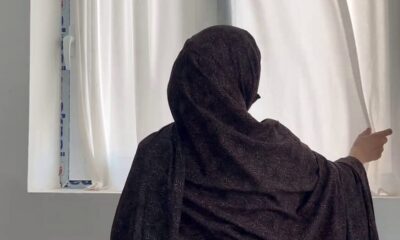Latest News
Key to war and peace lies with Pakistan: Karzai
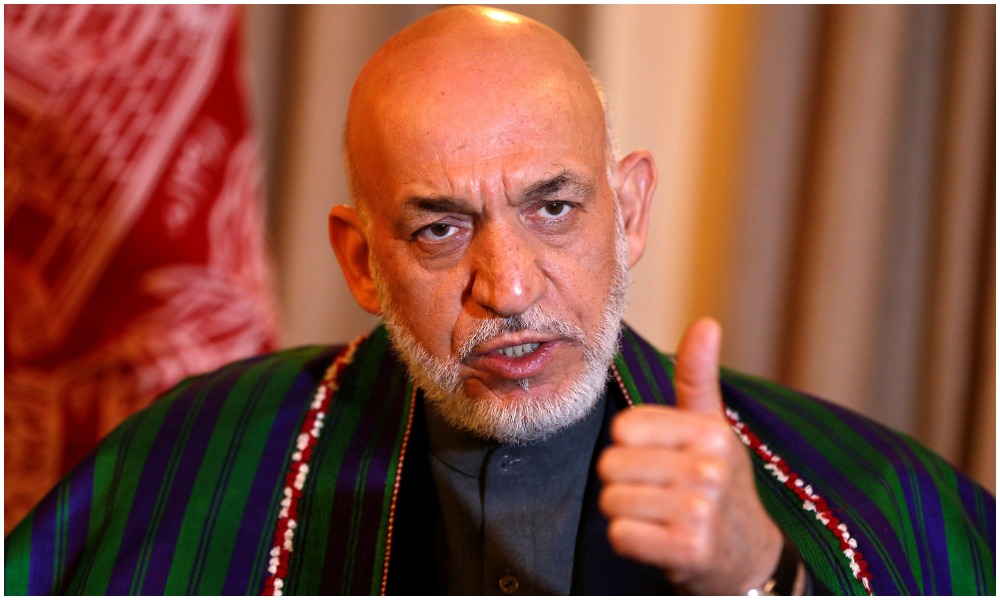
Former Afghan president Hamid Karzai said Afghans are being used against each other by external forces and that Pakistan wants to exert strategic influence in Afghanistan through the Taliban.
In an interview with Germany’s weekly news magazine Der Spiegel, Karzai said: “I realized early into my tenure as president that this war is not our conflict, and we Afghans are just being used against each other – the republic against the Taliban and the Taliban against us.
“Both the Afghan Republic and the Taliban are victims of these external forces. That is why we are suffering,” he said.
Giving background on the events of the past 20 years, Karzai said that after the September 11, 2001, terrorist attacks in the U.S., Washington took the historic opportunity to pursue its global ambitions in Afghanistan.
“Just look at our position on the map. Afghanistan is the most strategically important place in today’s global contest for supremacy. At the same time, Pakistan started using the Taliban to further its own agenda in Afghanistan.”
He noted that there are local and regional conflicts, but according to him what is of key importance is “geostrategic domination”.
Karzai said a key moment for him had been during a meeting with senior U.S. policymakers in Washington in 2013, including former president Jimmy Carter’s now-deceased national security adviser, Zbigniew Brzezinski.
“When I asked whether it was true that America was deliberately promoting radical Islamist forces in Afghanistan and the region, Brzezinski said, yes, they wanted to create as many conflict zones around the USSR as possible, a so-called ‘arc of crisis’, and that the Soviet invasion was a good opportunity to carry this out.
“I replied that Islamist extremism had been gravely strengthened as a result and had grown into the danger it is today. Brzezinski replied that from a historical perspective, the rise of a few Islamists was ‘irrelevant’ compared to the failure of communism,” he said.
Explaining what this contest of world powers has to do with the Taliban, Karzai said: “When things started to go wrong in Afghanistan – around 2005, 2006, when the extremist terrorist attacks started – we talked to the U.S. about the different causes of the violence. We knew that these attacks were being organized by intelligence in Pakistan and carried out by the Taliban.
“The U.S. confirmed this independently, telling us: Yes, the violence is coming from Pakistan, and yes, the Taliban’s sanctuaries are there. But instead of investigating the root cause of the violence and going after it, Washington started to fund Pakistan’s military,” he said.
Karzai said the U.S. was supporting both sides of the conflict at the same time.
“It was dropping bombs on Afghan villages in order to fight the Taliban, while at the same time, funding the very country accused of organizing Taliban terror campaigns.
“Former U.S. President Donald Trump once announced that America had paid $35 billion to Pakistan over these past 19 years. This contradictory policy cost thousands of Afghan lives – troops and civilians alike. Tell me, how was Afghanistan supposed to come to peace?,” he asked.
Asked how the U.S. responded to his take on this, Karzai said there has never been a satisfactory answer.
“Either the U.S. has really miscalculated strategically, or Pakistan, which is so closely linked to China and Great Britain, is simply more important than we are for achieving Washington’s global goals,” he said.
Karzai stated that Pakistan wants to exert strategic influence in Afghanistan through the Taliban adding that this traces back to fears related to the legacy of British colonial rule in the region.
He said however that Afghans want strong relations with Pakistan but that this can only exist if there is peace and stability in Afghanistan and “if the trust deficit is eliminated, and if Pakistan shows itself to be a good neighbor”.
On the disputed border issue – the Durand Line – between the two countries, Karzai said: “We want an open exchange between people on both sides, without border controls, and with freedom of movement, similar to what Europeans have achieved today between Germany and France.”
He went on to state that Pakistan would like Afghanistan to break off relations with India.
“That is impossible. If we give in to this, we would give up our sovereignty and independence. If we want to send our police or our army or our boys and girls to India for training because it is good for our country, we should do so. Conversely, India should not complain if we have friendly relations with Pakistan,” he said.
Asked why Pakistan should give up its fight now, Karzai said: “The Pakistani offensive is in full swing right now. There is fighting going on. But Pakistan must know that it cannot win by force.
“They may kill us. They may send us bombs, they may send us extremists, but that does not kill our spirit. Dominating Afghanistan from the outside has never worked. It didn’t work for the British, it didn’t work for the Soviets, and it didn’t work for the United States, even with all of its resources.
“And the Pakistanis will not succeed either. Right now, we are closing ranks in Afghanistan and organizing resistance. So my appeal to Pakistan is: Let’s be reasonable. Let’s start a civilized relationship between our two countries,” he said.
“We would welcome such a proposal with the utmost interest. At the same time, we have high hopes for the so-called Troika plus, a diplomatic initiative launched by Russia, which also includes China and the United States,” he said.
Karzai said however that both sides need to stop claiming to have the right to represent the Afghan people while holding the guns of a foreign power in their hands.
“My advice is this: Let the Taliban come back. Let them participate and prove themselves in public, whether in the Loya Jirga – the traditional representation of the people – in elections or in a referendum, as is customary around the world. Only then will it become clear who truly represents the people,” he said.
He also pointed out that after the Taliban’s agreement with the U.S. last year, there is no longer any religious or patriotic legitimacy for them to attack their own countrymen or to instigate conflict in Afghanistan.
“Additionally, we cannot preserve the achievements of the last 20 years without the full participation of Afghan women. I am particularly proud and happy about their return to public life, by the way, and so are the Afghan people. We cannot allow Afghan girls not to go to school. The Taliban know that,” he said.
In conclusion he said ultimately, the Taliban are also Afghans, and that he hopes they will stand up to foreign influences where necessary, such as in Pakistan.
“My appeal to Afghans, including the Taliban, is that we come together and finally take our fate into our own hands against all foreign powers,” he said.
Latest News
Ministries of Public Health and Higher Education sign cooperation agreement
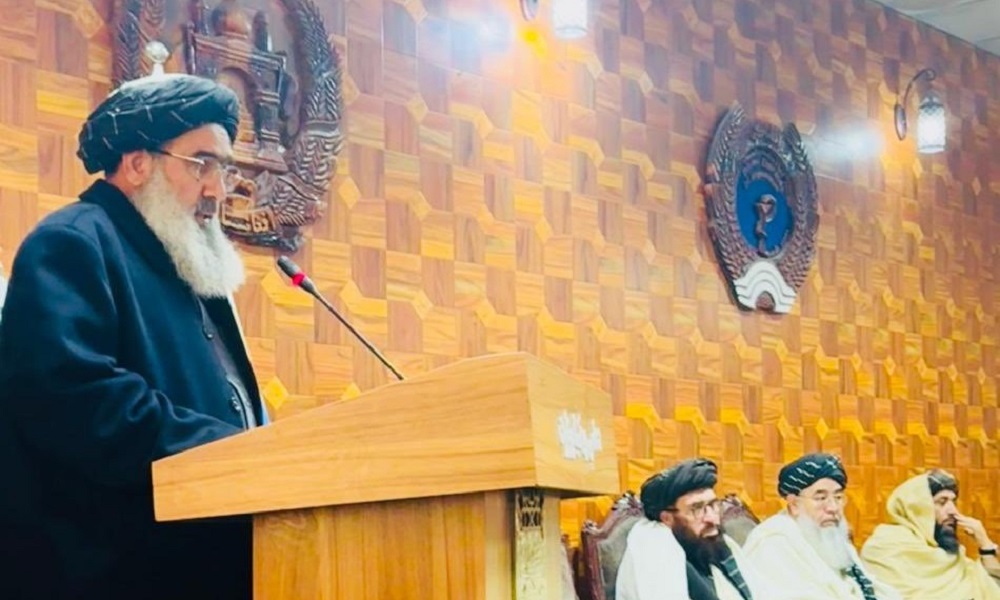
The Ministry of Public Health announced on Tuesday it has signed a cooperation agreement with the Ministry of Higher Education aimed at expanding scientific, research, educational, and technical cooperation.
At the signing ceremony held in Kabul, Noor Jalal Jalali, Minister of Public Health, said that the agreement would lead to significant improvements in the capacity-building of students and doctors, ensure that research is conducted based on evidence, and enable the collection of accurate data.
Meanwhile, Neda Mohammad Nadeem, Minister of Higher Education, described the agreement as beneficial to the public and to both institutions, stressing the need to train individuals at universities who can contribute to social development and make the country self-sufficient in the public health sector.
Latest News
UNAMA holds new round of Working Group meetings on counter-narcotics and private sector
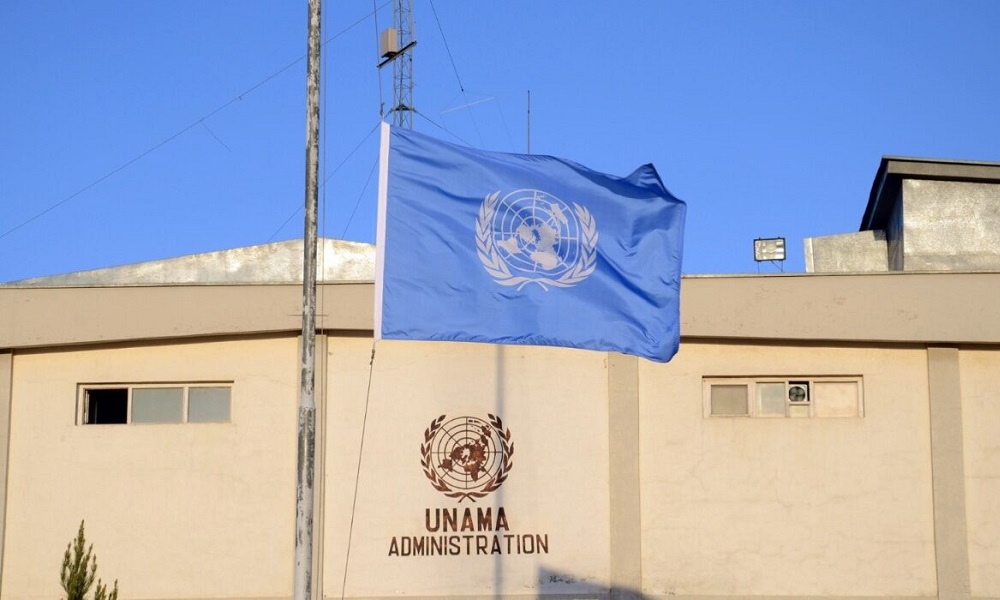
The United Nations Assistance Mission in Afghanistan (UNAMA) has convened a new round of Doha Process Working Group meetings focusing on counter-narcotics and private sector development.
The meetings, held in Kabul on February 3 and 9, brought together representatives of UN member states and international organizations, officials of the Islamic Emirate, and subject-matter experts.
According to UNAMA, discussions in the counter-narcotics working group centered on efforts by Islamic Emirate authorities and the international community to support alternative livelihoods for Afghans previously dependent on poppy cultivation and the illicit opium trade. Participants also reviewed drug-use prevention and treatment initiatives, as well as law-enforcement measures to curb narcotics production and trafficking.
The private sector working group focused on job creation and entrepreneurship, with particular attention to women’s participation in the private sector, market integration, access to finance, and the development of private banking and financial infrastructure.
UNAMA said both working groups identified priority areas for enhanced engagement and explored more effective and sustainable approaches to supporting Afghan men and women. Participants also examined the linkages between the two areas, noting that private sector development is a key source of livelihoods, while counter-narcotics efforts contribute to Afghanistan’s economic and social stability.
The working groups were established following the third Meeting of Special Envoys held in Doha, Qatar, in June and July 2024, in line with recommendations of the Independent Assessment endorsed by the UN Security Council. The process aims to promote more coherent, coordinated, and structured engagement with Afghanistan’s de facto authorities for the benefit of the Afghan people.
UNAMA added that stakeholders engage in the working groups on an ongoing basis, with full-format meetings convened periodically. Since their establishment, the groups have improved information-sharing, helped mobilize additional resources, and facilitated expert exchanges to strengthen support for the Afghan people.
Latest News
Economic Commission approves national policy for development of agriculture

At a regular meeting of the Economic Commission chaired by Mullah Abdul Ghani Baradar, Deputy Prime Minister for Economic Affairs, the National Policy for the Development of the Agriculture and Livestock Sector was approved.
According to a statement from the deputy PM’s office, the key objectives of the policy include the mechanization of the agriculture and livestock sector; development of agricultural, irrigation, and livestock research and extension systems; management of irrigation systems; support for investment in these sectors; and ensuring public access to high-quality agricultural and animal products.
During the same meeting, the development plan for the fish farming sector was also approved.
Under this plan, through private sector investment, 7,700 small, medium, and large fish production and farming facilities will be established on 6,500 hectares of land in various parts of the country.
The statement added that the implementation of this plan will create direct employment opportunities for 50,000 people and indirect employment for 250,000 others.
-

 Latest News3 days ago
Latest News3 days agoAfghanistan to grant one- to ten-year residency to foreign investors
-

 Sport5 days ago
Sport5 days agoIndonesia shock Japan to reach historic AFC Futsal Asian Cup final
-

 Sport3 days ago
Sport3 days agoIran clinch AFC Futsal Asian Cup 2026 in penalty shootout thriller
-

 Latest News4 days ago
Latest News4 days agoAfghanistan says Pakistan is shifting blame for its own security failures
-

 International Sports2 days ago
International Sports2 days agoWinter Olympics gain momentum as medal table takes shape
-

 Latest News3 days ago
Latest News3 days agoTraffic police receive new cars
-
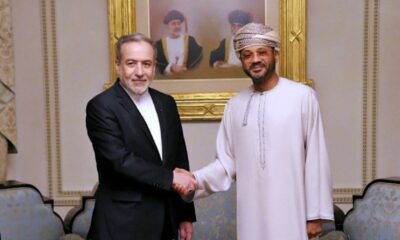
 Regional4 days ago
Regional4 days agoIran’s FM calls Oman-mediated talks with US ‘good start’
-
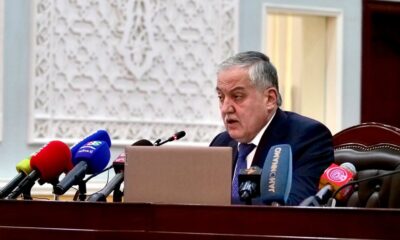
 Latest News2 days ago
Latest News2 days agoTajik foreign minister urges international community to help Afghanistan address its challenges








